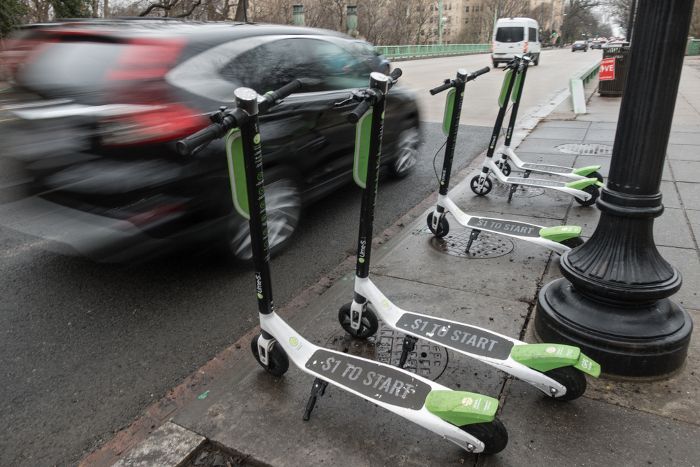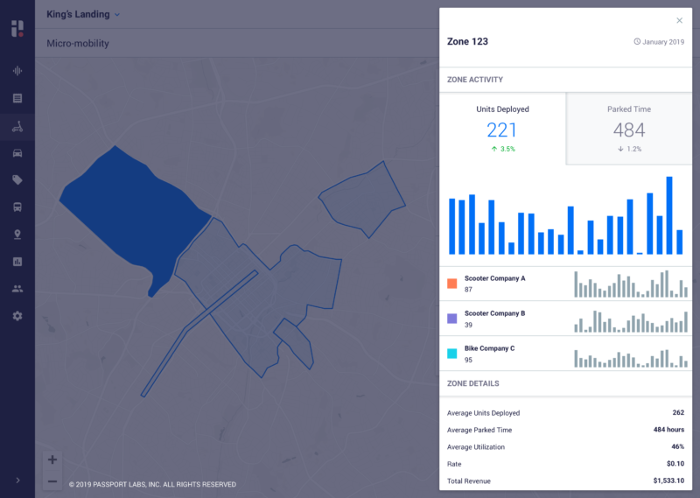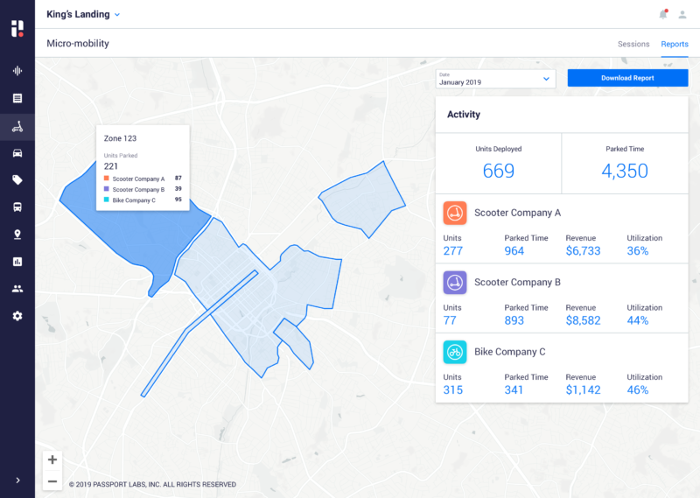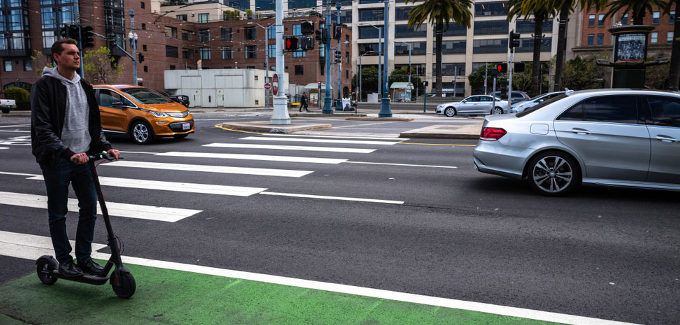Three major US cities are partnering with mobility services company Passport on a first-of-its-kind micro-mobility management solution that aims to reduce congestion, improve short-trip travel options, and give authorities better control of their curbsides and street space.
Micro-mobility options, such as scooters and bikes, are seeing explosive growth due to unique benefits they bring to the commuting experience, but this has created new challenges for cities to manage the supply and use of these vehicles. Responding to this shift in urban mobility, cities are looking for innovative approaches to embrace the adoption of scooters and drive positive outcomes, such as reducing traffic congestion, providing first mile/last mile solutions, improving pedestrian safety, and increasing mobility options in underserved areas. Three cities, Charlotte (North Carolina), Detroit (Michigan), and Omaha (Nebraska), have announced a collaborative pilot program to manage micro-mobility in a new way, through sharing best practices and making use of Passport’s mobility platform.

Pioneering this new approach to micro-mobility management, the cities will be the first to apply parking principles, data analysis and a software platform to charge for scooter parking to balance the supply, demand and distribution of scooters. Instead of capping scooter volumes or imposing flat fees, Passport’s methodology and technology will allow each city to incentivize behavior by charging for curb space fairly across all modes of mobility. Just as cities charge cars to park at the curb, they can apply an existing digital parking infrastructure for scooters. With this solution, cities can maintain visibility and control over scooter deployments and better manage their curbs, while enabling mobility providers like Bird, Lime, Spin and Razor to manage their fleets more flexibly and conveniently.
Originally developed as a smartphone-based parking payment system, Passport’s product lines now include parking, transit and tolling payments, parking enforcement and permit management, which enable nearly 600 municipalities, universities and private operators worldwide to streamline their urban mobility operations, enhance customer service and make data-driven decisions. The new and first-of-its-kind software platform developed by Passport will make use of data from micro-mobility providers and allow cities to:
 • Analyze scooter distribution and use patterns;
• Analyze scooter distribution and use patterns;
• Power curbside pricing and payments;
• Manage scooters to address city-level objectives such as equitable access and first/last mile solutions for transit.
“While our relationships with these cities began with mobile payments for parking, permits, and enforcement, it soon became apparent that there was much more we could do together to improve urban mobility in each city,” said Bob Youakim, Passport’s CEO. “We will continue to help each city define its needs for curb management, be it through the management of scooters, first/last mile services, or the integration of new connected technologies that create a seamless relationship between city officials and residents.”
Mark de la Vergne, chief of mobility innovation for the City of Detroit, commented, “Working with Passport, we can now gather insight on how our citizens are using these new forms of mobility and be more strategic about managing scooters using supply-and-demand economics. With this pilot program we are now connected to a network of cities facing the same challenges and we can effectively work together to develop a new regulatory model that can be scaled nationally.”





